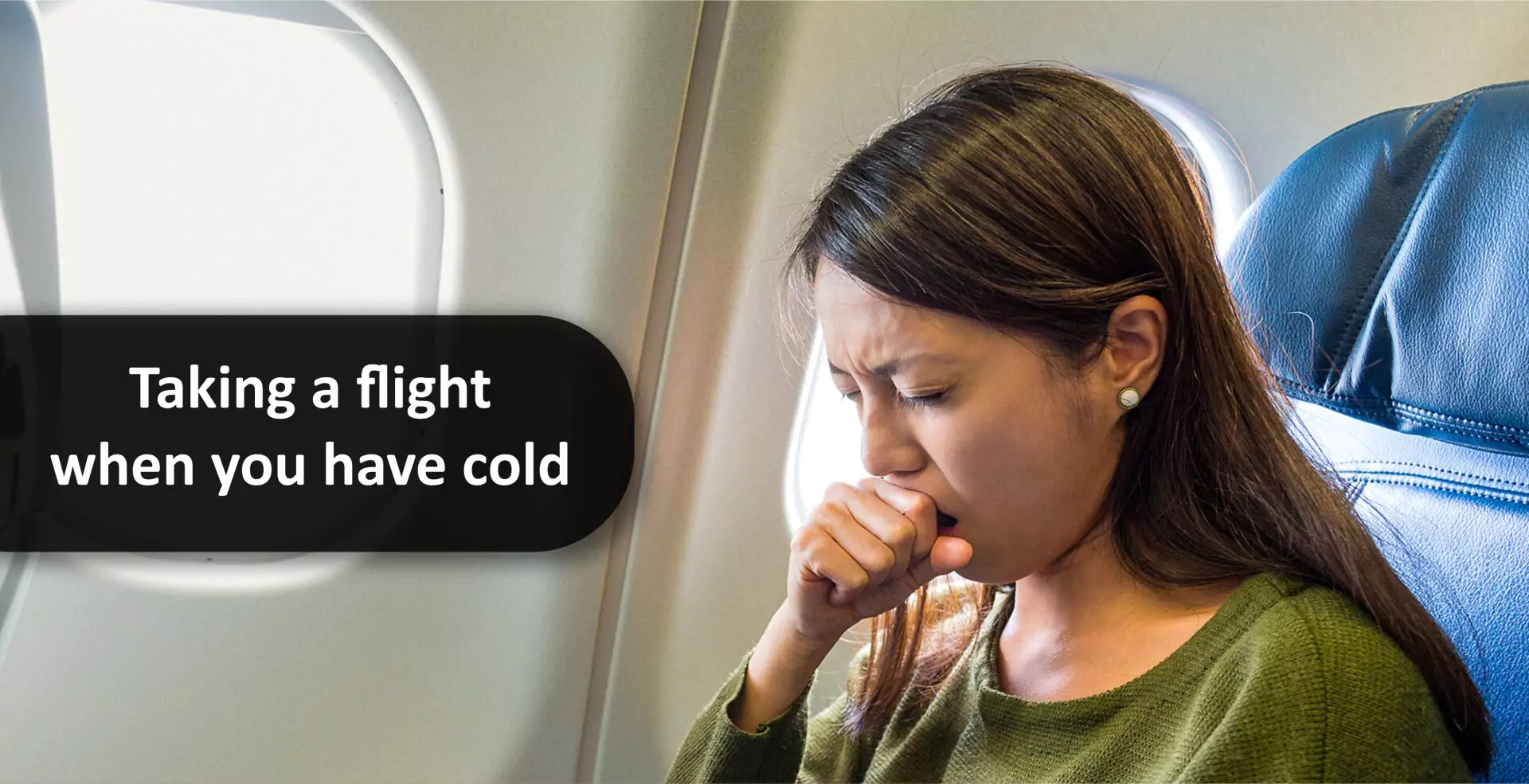Taking a flight when you have a cold
High altitude can cause a difference in the pressure of our internal organs, and the Eustachian tube closes, blocking the ears, to prevent the pressure difference from affecting the brain. This is commonly referred to as Airplane Ear or Ear barotrauma. When a high altitude pressure difference could affect the ear, nose, and throat, what could happen when one wishes to air-travel when they already have a pre-existing cold? The consequences depend on the severity of the cold.
Air travel with cold:
The ENT specialists recommend that it is safe for people with mild cold symptoms such as mild congestion, fatigue, and aches to travel by air. But if you are sick for several days and if over the counter cold medications are not working for the ailment, then it is not a good idea to travel. It is in the best interest of both self and other co-passengers. Because traveling with a contagious disease in a closed space can be dangerous for self and others.
Dealing with clogged ears during flying could be a great challenge, with pre-existing cold. The Eustachian tubes, that connect the throat and the inner ear balance the pressure between the body and outside air when the cabin pressure drops. But during a cold, when the mucus membrane in the airway is already swollen, it becomes tough for air to escape from the ears, resulting in more clogs. These clogs can be quite painful and intense and might even damage the eardrum. Thus ENT specialists recommend protecting the eardrums efficiently while flying.
Protection during air travel:
Doctors recommend air travel during mild cold but warn on keeping the Eustachian tube open to minimize the risk of eardrum rupture. This can be done with the help of decongestants that help to reduce the swelling in the mucus membrane and make it easy for air to move through the Eustachian tubes. It is advisable to use a decongestant both before boarding and after landing the plane.
ENT doctors Gurgaon also recommends the use of earplugs that are made especially for flying. These earplugs have built-in filters and thus help the ears to adjust to the changing pressure gradually. It is also beneficial to chew and yawn frequently to ease the pressure off the ears.
Traveling with a Sinus Infection:
Sinus infection or sinusitis is a chronic infection of the membranes around the hollow spaces in the facial bones. Sinusitis can be caused either by bacteria and viruses and feels a lot more like the cold. Doctors advise the same preventive tips as that of cold for travelers, such as using decongestants several hours before the travel to keep swelling at its minimum.
Final words:
According to ENT doctors Gurgaon, the best practice is to postpone travel during active cold infections and keep necessary medications and decongestants handy during the air travel. It is also beneficial to take allergy medications at least about an hour before the flight. Using filtered earplugs also helps in equalizing pressure against the eardrum during takeoffs and landing.














Was the information useful?
0 0